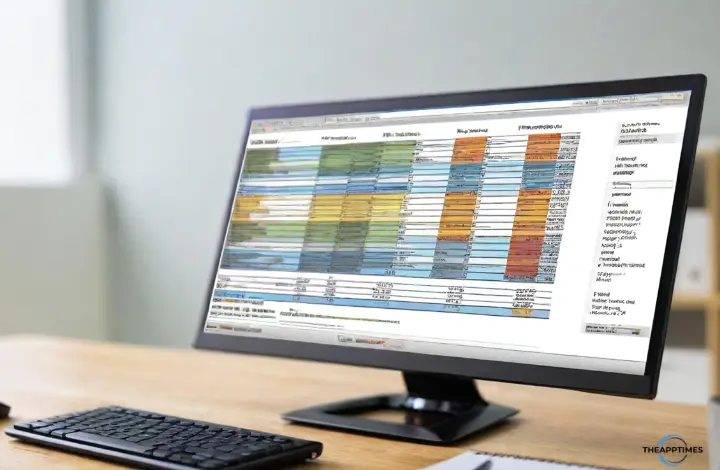In today’s fast-paced business environment, organizations are constantly seeking ways to analyze data, streamline operations and enhance decision-making processes. Microsoft’s Excel Copilot emerges as a groundbreaking tool that transforms how businesses handle their financial and operational tasks. By leveraging artificial intelligence and natural language processing, Excel Copilot serves as an intelligent assistant that revolutionizes how professionals interact with spreadsheets and data. Here’s a look at how Excel Copilot helps in automating financial operations
How Excel Copilot Helps in Automating Financial Operations

Financial Modeling and Forecasting
Gone are the days of spending hours crafting complex financial models. Excel Copilot introduces a new paradigm in financial modeling by understanding natural language commands and translating them into sophisticated spreadsheet operations. Financial analysts can now focus on strategic thinking while Copilot handles the technical implementation.
For instance, when building a five-year revenue projection model, you can simply instruct Copilot to “create a revenue forecast considering seasonal trends and historical growth rates.”
The AI assistant will analyze existing data patterns, apply appropriate growth factors, and generate a comprehensive model complete with formulas and assumptions.
Key advantages in financial modeling include:
- Automated scenario analysis where Copilot can generate multiple financial scenarios based on different market conditions and variables
- Dynamic sensitivity testing that adjusts key parameters and instantly shows their impact on financial outcomes
- Built-in error detection that identifies inconsistencies in formulas and assumptions before they affect decision-making
Automated Reporting and Dashboards
Perhaps one of the most time-consuming aspects of business operations is creating and maintaining regular reports and dashboards. Excel Copilot transforms this process by automating the entire reporting workflow, from data collection to visualization.
Imagine preparing the monthly financial performance report. Instead of manually updating charts and pivoting data, you can instruct Copilot to “update the monthly dashboard with current sales figures and highlight significant variances.”
The AI assistant will automatically refresh data connections, update visualizations, and even draft summary insights about notable changes in performance metrics.
The dashboard automation capabilities extend to:
- Real-time data integration from multiple sources, ensuring dashboards always reflect the latest information
- Intelligent layout suggestions that optimize the presentation of information based on the type of data and intended audience
- Automated alerts for unusual patterns or significant deviations from expected values
Budget Planning and Tracking
Budget management becomes more intuitive and dynamic with Excel Copilot. The AI assistant helps organizations move beyond static budget templates to create living documents that adapt to changing business conditions.
When developing annual budgets, Copilot can analyze historical spending patterns, identify trends, and suggest realistic budget allocations across departments. You can interact with the system naturally, asking questions like “What would be the impact on our quarterly budget if we increase marketing spend by 15%?”
Copilot responds by adjusting figures and highlighting cascading effects across different budget categories.
The system excels in:
- Automated variance analysis that identifies and explains deviations from planned budgets
- Smart categorization of expenses using machine learning to maintain consistent classification
- Rolling forecasts that automatically adjust based on actual performance and changing business conditions
Excel Copilot helps in automating financial operations but that’s not all. It helps in turning raw data into actionable insights with data analytics capabilities as well.
Business Analytics and KPI Monitoring
Excel Copilot transforms raw data into actionable business insights through advanced analytics and KPI monitoring. The system’s ability to understand business context allows it to suggest relevant metrics and analysis methods based on the organization’s goals.
For example, when analyzing sales performance, you can ask Copilot to “identify the top performing products by region and suggest growth opportunities.”
The AI assistant will automatically segment the data, perform statistical analysis, and present findings in an easily digestible format.
Advanced analytics capabilities include:
- Predictive analytics that forecast future trends based on historical data and external factors
- Automated correlation analysis to identify relationships between different business metrics
- Custom KPI dashboards that adapt to specific roles and responsibilities within the organization
The Future of Copilot in Business Automation
As Excel Copilot continues to evolve, its impact on business operations will only grow stronger. The integration of artificial intelligence with traditional spreadsheet functionality creates a powerful platform for business transformation. Organizations that embrace this technology gain not only efficiency in their operations but also deeper insights into their business performance.
Tips for organizations implementing Excel Copilot
- Develop clear protocols for data governance and security
- Train staff to effectively collaborate with AI assistance
- Establish workflows that maximize the benefits of automation while maintaining human oversight
The future of business operations lies in the seamless collaboration between human expertise and artificial intelligence. Excel Copilot represents a significant step forward in this journey, empowering organizations to achieve new levels of efficiency and insight in their financial and business operations.
Leave a Reply